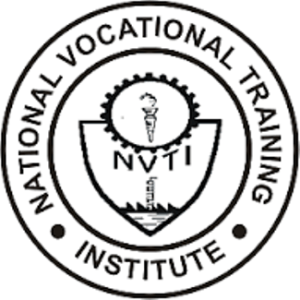TVET requires proper management – NVTI

The Executive Director of the National Vocation Training Institute, Mr Stephen Bismark Amponsah has said Technical and Vocational Education and Training (TVET) is vital for socio-economic transformation and therefore required proper management.
He said whoever managed any aspect of TVET must have proper understanding of its mission and mandate so that it could effectively contribute to the socio-economic development of the country.
Mr Amponsah said this when he addressed the 4th graduation of the Biriwa Vocational Training and Rehabilitation Institute in the Central Region at the weekend.
The day, which was celebrated on the theme: “Technical and Vocational Education Training, the need for a united front in Ghana,” offered the graduands the opportunity to showcase some of their products.
Some 216 students graduated after four years of training in Block Laying and Concreting, Carpentry and joinery, General Electrical, Catering, Dressmaking, Leather Works, Welding and Fabrications, Motor Vehicle Mechanics, Refrigeration and Air-Conditioning as well as Generic Skills for sustainable livelihood.
Mr Amponsah said Ghana and other developing countries in Africa faced similar challenges in TVET because of the perception that TVET was for dropouts and as such paid little attention and managed it poorly.
“If you come to Ghana, we have Technical, Vocation Education and Training and informal apprenticeship boxed together and you cannot use one standard to measure all of them. Definitely you cannot respond to the needs of each one of them. Each one has a specific need that should be looked at differently, ”he said.
According to him, TVET provided relevant skills necessary for enhancing economic performance, reducing poverty and creating employment and stressed the need for quality TVET delivery and equitable access to be able to effectively perform its role.
He expressed dissatisfaction that the concept of TVET was largely overshadowed by the high premium placed on University Education but indicated that governments stood to benefit if they consciously use it to reduce unemployment.
He said TVET was an alternative corridor for progress and therefore unemployed university graduates could enroll in TVET to get skills for employment.
Mr Amponsah said while tertiary education gave people clear analytical understanding of issues, TVET empowered people with specific occupational skills and that a combination of it and TVET would bring rapid economic growth.
The Institute Manager, Mr Samuel Kwashie Amegbor said the institute since its establishment in 1974 has trained more than 6,500 local and international students in various vocation and technical disciplines and were excelling in their field of specialty globally.
He expressed the need for a united TVET front in Ghana.
He said vocational education in Ghana struggled to survive due to numerous challenges, which included inadequate infrastructure and obsolete tools, equipment and machines.
Mr Amegbor called on the Government and other stakeholders to help the Institute address its problem of inadequate residential accommodation for students and teaching staff.
He appealed for financial support to help tar the roads in the school, build an assembly hall and buy a bus for the school.
He said the challenges hindered the mandate of the Institute in training the youth with quality employable TVET skills to meet the 21st century job market.
Source: GNA
